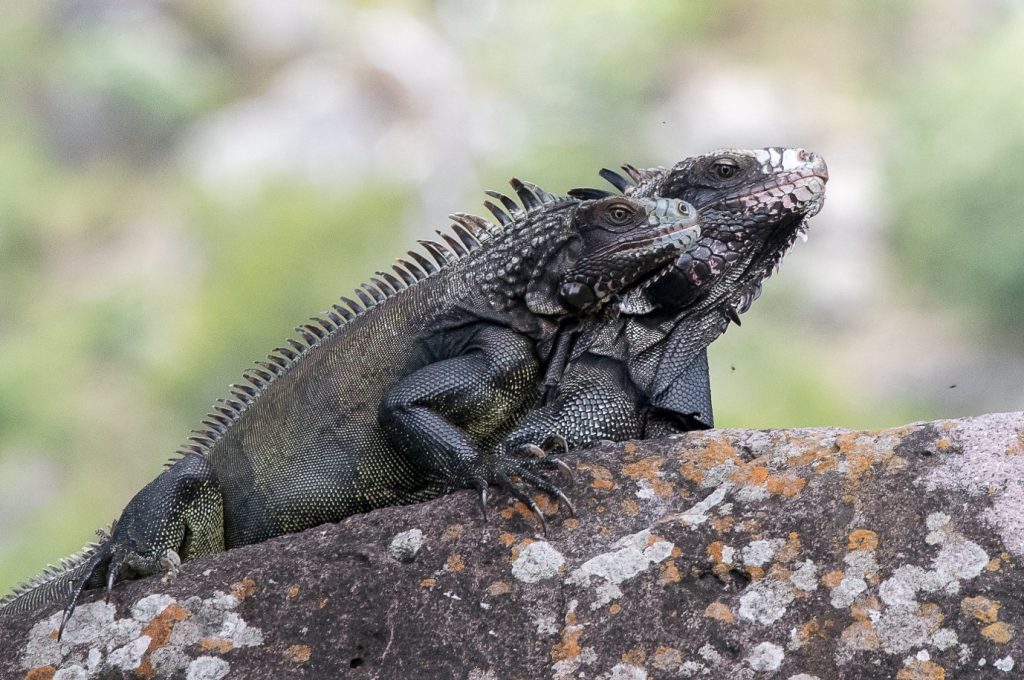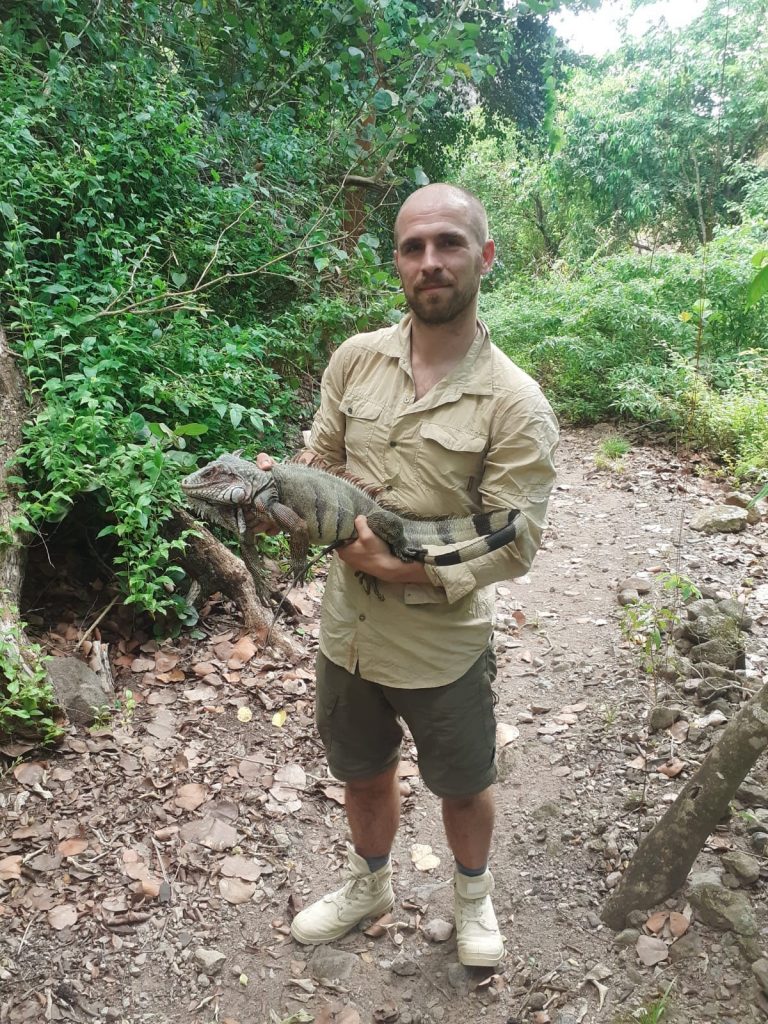During a 2021-population assessment of the Saba Green Iguana, researchers believed to have identified the presence of several non-native iguanas on the island of Saba. Later analyses of genetic samples confirmed this suspicion.

Non-native iguanas are widespread throughout the Lesser Antilles and form the main threat to the native Lesser Antillean Iguana. However, other endemic populations of Iguana are also native to the region; those on Saba, Montserrat, St. Lucia, St. Vincent and the Grenadines, and Grenada.
Now in a collaborating effort, the Saba Conservation and Wageningen Marine Research, have initiated an emergency response project, following an earlier campaign done on St. Eustatius. The project aims to identify and remove all non-native iguanas from the island. Over the last two weeks Thijs van den Burg and James Johnson have been in the field locating and capturing non-natives iguanas. Survey efforts are focused around two locations; the harbour and an area north of the town of Windwardside. Eight non-native iguanas were identified, of which four have successfully been removed. The other four will continue to be targeted during the next weeks and a second round of intense fieldwork effort is planned for early 2023.

Genetic analyses highlight the origin of the identified non-native iguanas to be Curaçao and the Central American mainland. However, their probable more direct source of origin are the non-native populations on Puerto Rico, and especially the non-native population present on neighbouring St. Maarten/Martin. This is the same as for non-native iguanas arriving on St. Eustatius, which also originate from St. Maarten/Martin. Both islands lack consistent biosecurity screening of arriving boats and onboard containers and their content. Hence, so far when containers are opened, iguanas inside are not directly caught or even considered as harmful. The project aims to make border control and customs officers aware of the danger that such invasive animals pose to native wildlife and secure their cooperation in capturing and reporting such stowaway hitchhiker species.
The recent fieldwork on Saba has been financially aided through the International Iguana Foundation and the Dutch Ministry of Agriculture Nature and Food Quality (LNV).